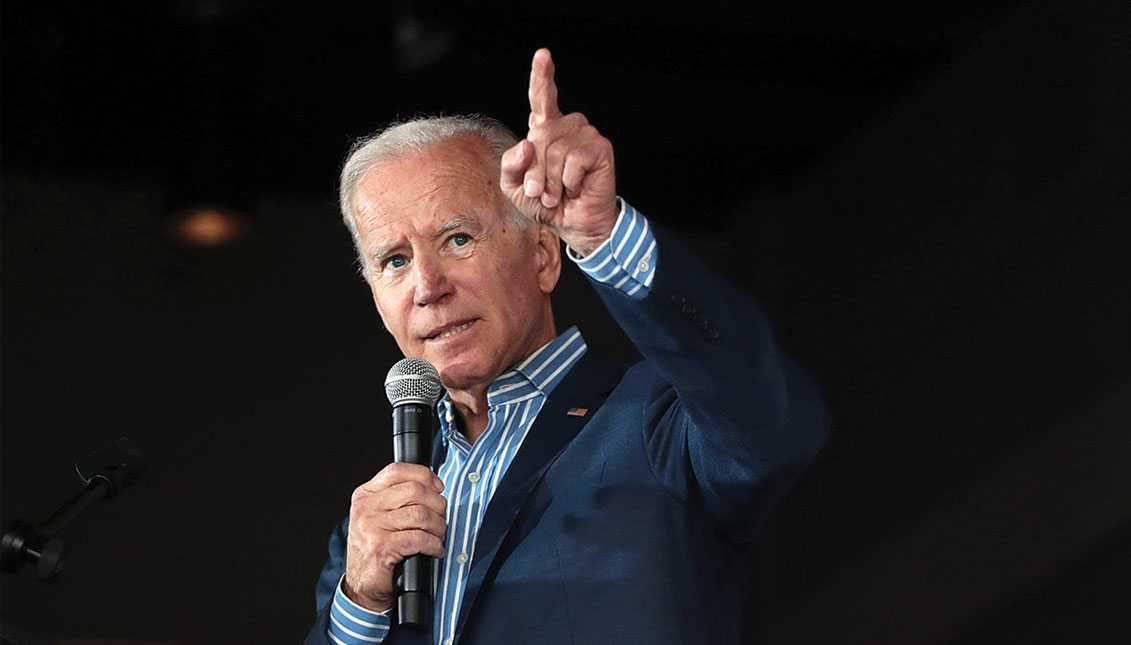
Can Joe Biden win the Latino vote?
After becoming the Democratic nominee for president, former vice president Joe Biden must now make up lost ground in the confidence of the minority vote.
Although some believe that Barack Obama's support for the candidacy of his former vice president will guarantee the support he needs to win in November, there is an undercurrent that could work against him.
For many in the Hispanic community, Obama will always be remembered as "the deporter in chief" because of the number of deportations of undocumented immigrants during his administration.
While the anti-immigrant measures of the Donald Trump government seem to be unparalleled, the historical memory of voters is a key issue in every election cycle.
Now called "the sleeping giant," the Latino vote is the secret weapon of any politician who wants to win a seat in local, state or national leadership.
This was evident during the mid-term elections in 2018 when the "Blue Wave" gave the Democratic Party a majority of seats in Congress, and with a deep Hispanic representation for the first time in history.
With double and triple-digit increases in their participation, and considering that they are the fastest-growing portion of the electorate, Latinos across the country and in all age ranges are now a decisive factor in the November presidential election, according to figures released last week by Univision Communications' political researchers.
"The data tells a compelling story about the strength and influence of the Latino voter that will inform and shape the upcoming 2020 election," said Univision CEO Vince Sadusky in a statement.
Univision's analysis is consistent with recently released turnout data from the National Association of Latino Elected and Appointed Officials (NALEO) based on the U.S. Census Bureau's latest population survey, which found that "Latino voter turnout increased by 13 percentage points in the 2018 election, a 50 percent increase in Latino voter participation from 2014.”
"More than 40 percent of the Latino citizen voting-age population cast ballots in 2018, up from 27 percent in the previous midterm election,” the report adds.
“You are starting to see this group now assert itself in elections at the local and national level. 2018 was historic turnout and I think you will see historic turnout again in 2020,” said Fernand Amandi, a Miami-based Democratic pollster. Noting that about 500,000 US-born citizens of Hispanic origin will turn 18 every year for the next 20 years. “You are talking about 10 million Hispanic voters who are entering the electorate. You are seeing them assert themselves,” he added.
"This is not just in key states, it's nationwide," said Sergio Garcia-Rios, director of Data and Polling for Univision who also teaches Government and Latino Studies at Cornell University and conducted his own study of census data. "It's not only the usual suspect like California. We see it in every state where we have data."
RELATED CONTENT
The fact that some Latinos are not convinced that Joe Biden is the ideal president to change the country does not imply that, on the contrary, they are inclined to support Donald Trump.
The problem is, as political observers have shown over the years, abstention.
According to the latest national poll by The Economist/You Gov, the difference between Biden and Trump in Latino support is only 4 percentage points, with 40% of respondents saying they would vote for the former vice president, compared to 40% who said they would support Trump.
This favorability among Hispanic voters was also supported by a Morning Consult/Politico poll released last Wednesday, with a margin of error of about 2 points.
The gap is so narrow that Biden will need an ambitious strategy to boost Hispanic participation equivalent to, say, Bernie Sanders.
“We spent more money on Latino outreach than Sen. Biden spent on his whole campaign probably,” said Chuck Rocha, a senior Sanders campaign adviser. “When we had time to run an extensive organizing program, we devastated people and showed how the Latino vote should be prioritized in every election.”
“Anybody can rebuild what I did,” Rocha added. “They just have to start early, listen to the community and hire the community. Bernie Sanders’ campaign proved you can do this.”
From the beginning of the race, Sanders empowered Rocha to plow considerable resources into the Latino community with specificity and consistency, according to McClatchy D.C. The campaign spent $4 million in California, $3 million in Nevada and $1.3 million in Iowa alone on Hispanic outreach, far outpacing its Democratic rivals. Sanders won a majority of the Latino vote in both Nevada and California in the midst of a field full of opponents.
“They know they need to do a lot more than what has been done to date. They need to speak to younger Hispanics,” Maria Cardona, a Latina Democratic strategist, said of the Biden campaign. “Frankly, they should hire Chuck Rocha to do the same type of outreach. … It was beautifully done. They put in the effort. … They did it early. That’s what needs to be done.”











LEAVE A COMMENT: